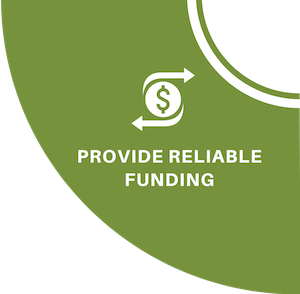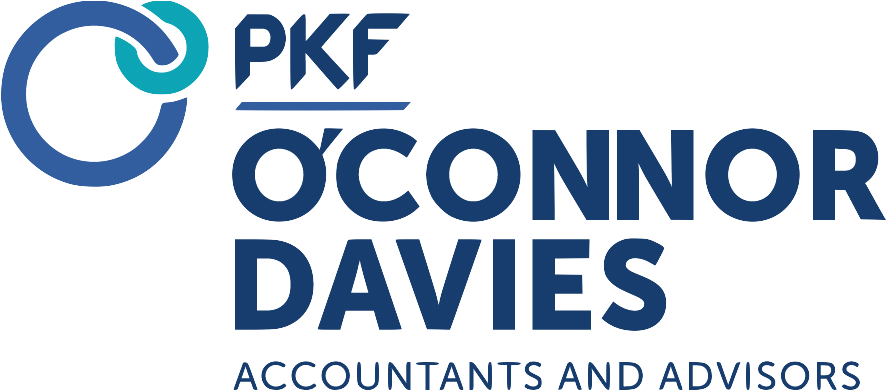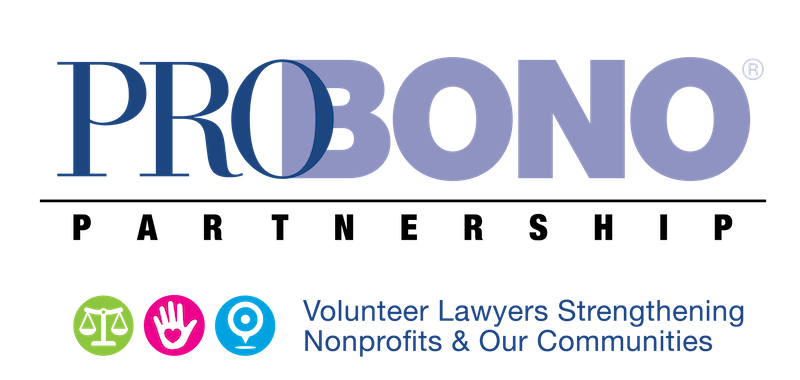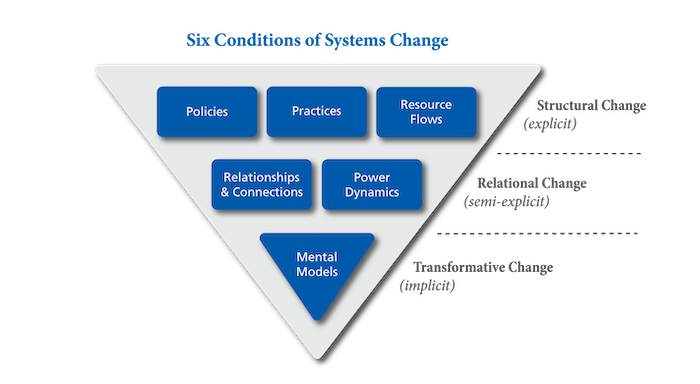Site Search
- resource provided by the Forum Network Knowledgebase.
Search Tip: Search with " " to find exact matches.
The 2018 President’s Report is our annual look back at CNJG’s robust programming and services for our members and, by extension, the communities they serve. The Council is an engaged and cohesive network of grantmakers dedicated to our state’s communities and people.
The 2020 President’s Report is our annual look back at CNJG’s robust programming and services for our members and, by extension, the communities they serve. The Council is an engaged and cohesive network of grantmakers dedicated to our state’s communities and people.
The 2021 President’s Report is our annual look back at CNJG’s robust programming and services for our members and, by extension, the communities they serve. The Council is an engaged and cohesive network of grantmakers dedicated to our state’s communities and people.
We are pleased to share the 2022 Newark Philanthropic Liaison Report to the Field. The role continues to demonstrate meaningful impact in Newark while serving as a model to other cities and states across the country interested in deepening the intentionality of public-private partnerships.
Community colleges offer greater affordability than private or state colleges, are adept at providing flexible education schedules and delivery, and are often deeply tied to the local areas in which they reside. This type of accessibility and inclusivity provides enormous opportunities for students left out of traditional higher education models. And while there is a road to recovery for community colleges post-COVID, they can play a critical role in building a future workforce in local communities and creating a more equitable higher education system for New Jersey students.
During this program, we’ll hear from several community college leaders on the impact of the pandemic on enrollment and learning, the biggest challenges facing higher education right now, and the opportunities they see to close education gaps and improve student outcomes. Join us to learn more about community colleges as a pathway to success for students in New Jersey, and philanthropy’s role in supporting more accessible, affordable, and flexible higher education models.
Speakers include:
Brian Bridges, Ph.D., Secretary of Higher Education, State of New Jersey
Dr. Michael Gorman, President, Salem Community College
Steven M. Rose, President, Passaic Community College
Cost: Free for CNJG Members; $50 for Non Member Grantmakers.
This program is only open to staff and trustees from grantmaking organizations.
Webinar Video
CNJG is pleased to partner with the Office of Internet Connectivity and Growth (OCIG) within the National Telecommunications and Information Administration at the U.S. Department of Commerce on this series to help the funding community know about the federal government’s investment into broadband access, and how communities, residents and organizations can take advantage of these funding opportunities.
The National Telecommunications and Information Administration (NTIA) and the New Jersey Office of Broadband Connectivity are hosting a series of public virtual roundtable meetings, which will take place once per month from February through July 2023. Join us to learn more about Internet for all, Broadband Equity, Access and Deployment (BEAD) and the Digital Equity Grant funding planning in New Jersey.
These meetings are intended to create open communication and collaboration on BEAD and DE projects. This first meeting is an introduction to these programs, explains the coordination between NTIA and the NJ Office of Broadband Connectivity, and outlines upcoming important upcoming dates.
Resources
Webinar Recording
BEAD Info Sheet
Digital Equity Act Info Sheet
Ways to Get Involved – Local Governments
Ways to Get Involved – Tribal Entities
Ways to Get Involved – Community Based Organizations
Ways to Get Involved – Communities of Color
Ways to Get Involved – Industry
Multi-year Grants
Affirmation: Multi-year funds provided both reliability and breathing room for nonprofits.
Making fundamental and long-lasting change comes with the promise of reliable investments. Longer grant terms create an environment where collaborative partnerships can flourish, and trust and transparency break down power dynamics. The result is that nonprofits have the “breathing room” and financial stability to focus activities where they are most needed.
Although many funders award grants to the same nonprofits year after year, they often require submission of annual applications that request information they already have and are complex and needlessly lengthy. These processes can heighten mutual distrust. From a practical standpoint, multi-year awards reduce paperwork for both funder and nonprofit and open communication channels promoting shared goals, mutual trust, and increased overall impact.
Activities
• For funders that historically award repeat annual grants to the same nonprofit partners, shift from an annual grant/proposal cycle to a long-term, multi-year commitment with an annual outcomes/progress report in lieu of a full application.
• Tailor grant terms to suit grantee timelines and needs (negotiated outcomes and milestones).
• If data collection is required solely to meet a funder’s compliance requirements, the funder should assume this responsibility or provide sufficient funding and/or capacity for the nonprofit to meet the requirement.
Short-term Outcomes
• The number of funders making multi-year grants increases by 50% over the previous years.
Long-term Outcomes
• More funders convert an annual application process for repeat grantee partners to a multi-year commitment with an annual outcomes report at the most, instead of full proposals each year.
• Funders assume responsibility for data collection or provide sufficient funding and/or capacity for the nonprofit to meet the requirement.
• Grant terms are suited to grantee timelines and needs (negotiated outcomes and milestones).
How to Begin Doing Good Better on Reliability
Learning opportunities
• What barriers keep funders from making long-term commitments to repeat grantee partners? Are any of these barriers legal?
• What are the minimum data requirements for funders to collect from repeat grantee partners?
Pre-Work
• Address the barriers to awarding multi-year grants through tested tools.
• Learn about how multi-year grants strengthen grantee partners and improve philanthropic, nonprofit, and community impact.
• Research mechanisms funders can use to meet legal compliance requirements while gaining trust in their grantee partners.
This weekly conference call series welcomed New Jersey-based grantmakers along with national funders and provided an opportunity for grantmakers to hear from a wide range of experts in the field of disaster philanthropy. This series started on November 5, 2012, one week after Sandy struck New Jersey, and continued through March 25, 2013. The written summaries of each recording are listed below.
Virtual Marketplace
The Virtual Marketplace provides a list of vendors providing services of particular interest to the philanthropic community.
The Council of New Jersey Grantmakers encourages its members to conduct their own due diligence when selecting vendors. This listing does not imply endorsement by CNJG.
If you are interested in being listed here, please contact us.
Marketplace Vendors
Tom Knowlton
CEO | CSR Talent Group
New York, NY
1-917-751-4482
[email protected]
www.csrtalentgroup.com
CSR Talent Group provides companies with vetted, flexible CSR, Philanthropy, ESG and Sustainability experts that can be hired on a project basis or for longer term needs. Our on-demand, global talent marketplace provides companies with a turnkey, standardized RFP process followed by immediate access to their choice of specialized experts who match their needs – and all without the overhead of a traditional consulting firm. For more information, www.csrtalentgroup.com.
Christopher D. Petermann, CPA, Co-Partner-in-Charge Private Foundation Practice
Scott A. Brown, CPA, Partner Private Foundation Practice
20 Commerce Drive, Suite 301
Cranford, NJ 07016
(908) 272-6200
[email protected]
[email protected]
www.pkfod.com
PKF O’Connor Davies, LLP is a full-service certified public accounting and advisory firm with offices located in New York, New Jersey, Connecticut, Maryland, Florida, Rhode Island and Massachusetts and more than 1,400 professionals. The Firm provides a complete range accounting, auditing, tax and management advisory services to over 4,000 not-for-profit organizations – including 500 private foundations.
Christine Michelle Duffy, Director New Jersey Program
Parsippany, NJ
(732) 227-0800
[email protected]
www.probonopartner.org
Pro Bono Partnership provides free legal help to nonprofits in New Jersey, New York, and Connecticut. The Partnership has been helping nonprofits build capacity, reduce risk, and keep up with legal requirements for 25 years! In addition to direct legal advice, the Partnership offers a free Legal Resource Helpline (in NJ: 973-240-6955), important updates via email, and free and low-cost webinars, workshops, and articles covering most-asked-about topics.
Adam Holzberg, Partner
389 Interpace Parkway, Ste 3
Parsippany, NJ 07054
(973) 554-6065
[email protected]
www.saxllp.com
SAX is a Top 100 accounting, tax, and advisory firm serving the needs of privately held companies, family-owned businesses, nonprofit organizations, and high-net-worth individuals. With a commitment to guiding clients through complex financial landscapes, SAX provides strategic solutions that drive growth, compliance, and long-term success. Founded in 1956, the firm is headquartered in Parsippany, NJ, with additional offices across the region.
Amy Fiore, Managing Director
LinkedIn
[email protected]
Maureen Prout Alvidrez, Managing Director
LinkedIn
[email protected]
Sobel Bixel: Consulting for Nonprofits is a fundraising and organizational management consulting group of experienced nonprofit and development professionals focused on campaigns, feasibility studies, strategic planning, leadership training & development, and fundraising strategy. Learn more at www.sobelbixel.com
Keith Timko, Executive Director
One Gateway Center, Ste. 2600
Newark, NJ 07102
(646) 436-0453
[email protected]
www.supportcenteronline.org
Support Center is a nonprofit capacity building organization originally established in 1971. We have been a trusted local partner to nonprofits in the greater New Jersey/New York/Connecticut area for more than 30 years. Support Center specializes in organizational development, consulting and executive transition and has worked with grantmakers directly and with grantees on initiatives ranging from leadership programs to individual executive transition and strategy and management initiatives.

Larissa Lazaro, Sales Consultant – Nonprofit
640 5th Avenue, 19/F
New York, NY 10019
(646) 895-0995
[email protected]
www.trinet.com
TriNet provides small and medium-size businesses (SMBs) with full-service HR solutions tailored by industry. To free SMBs from HR complexities, TriNet offers access to human capital expertise, benefits, risk mitigation and compliance, payroll, all enabled by industry leading technology capabilities. TriNet’s suite of products also includes services and software-based solutions to help streamline workflows by connecting HR, Benefits, Employee Engagement, Payroll and Time & Attendance. From Main Street to Wall Street, TriNet empowers SMBs to focus on what matters most—growing their business and enabling their people. TriNet, incredible starts here.
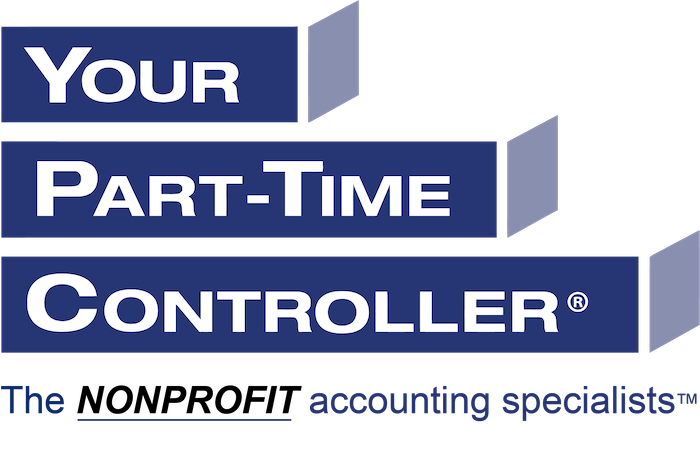
George H. Stout Jr., Manager
(215) 525-3121
[email protected]
www.yptc.com
For nearly 30 years, Your Part-Time Controller has focused exclusively on helping nonprofit organizations with their accounting, financial reporting, and financial management. YPTC works on-site or remotely, with all types of nonprofit organizations.
This advocacy and civic engagement toolkit is designed for private foundations that want to educate and encourage their grantees about getting involved in civic and policy activities to increase organizational capacity and impact. While its primary focus is on the grantmaking activity of foundations, the toolkit also addresses rules and guidance for policy involvement by foundation officials acting on behalf of their foundations.
This advocacy and civic engagement toolkit is designed for community and public foundations that want to educate and encourage their grantees about getting involved in civic and policy activities to increase organizational capacity and impact. While its primary focus is on the grantmaking activity of these foundations, the toolkit also addresses rules and guidance for policy involvement by foundation officials acting on behalf of their foundations.
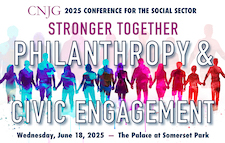
Date: Wednesday, June 18
Time: 8:00 a.m. to 4:00 p.m.
Location
The Palace at Somerset Park
333 Davidson Ave, Somerset, NJ
CNJG’s 2025 Conference for the Social Sector—Stronger Together: Philanthropy and Civic Engagement, features recognized thought leaders, national and regional experts, and community leaders for a full day of connection, shared exploration, thoughtful discussion, and side-by-side learning with philanthropic and nonprofit colleagues.
This year's conference will examine how funders and nonprofits can work together to address and increase civic engagement, focusing on several key areas, including advocacy, local media, participatory budgeting, guaranteed income, public-private partnerships, the arts, and youth education through the lens of civic participation.
Civic engagement is about more than voting or elections. As our colleagues at Philanthropy for Active Civic Engagement (PACE) define it:
“Civic engagement is the process of helping people be active participants in building and strengthening their communities, whether defined as a place or a shared identity or interest. It’s a spectrum of ways people can participate in self-governance, from interactions with government to voluntary associations, and everything in between.”
The opportunity for local communities to convene, learn together, and form partnerships can lead to meaningful action and increased public participation. Let’s explore how philanthropy can impact the social sector by buttressing these connections.
CNJG represents over 130 of NJ’s leading philanthropic organizations – foundations, corporations, and donors. Each year, we present a large-format meeting to include nonprofit partners to discuss big picture topics fostering learning and dialogue between funders and nonprofits.
| Agenda | |
| 8:00 - 9:00 am |
Registration/Breakfast/Networking/Resource Marketplace |
| 9:00 - 10:00 am | |
| 10:00 - 10:15 am |
Networking & Resource Marketplace |
| 10:15 - 11:30 am |
Morning Sessions: The Future of Civic Engagement |
| 11:30 - 11:45 am |
Networking & Resource Marketplace |
| 11:45 - 1:30 pm | |
| 1:30 - 1:45 pm |
Networking & Resource Marketplace |
| 1:45 - 3:00 pm |
Afternoon Sessions: Mobilizing New Jersey |
| 3:00 - 4:00 pm |
Ice Cream Reception/Networking/Resource Marketplace |
Conference Photos
This weekly conference call series welcomed New Jersey-based grantmakers along with national funders and provided an opportunity for grantmakers to hear from a wide range of experts in the field of disaster philanthropy. Series 1 started on November 5, 2012, one week after Sandy struck New Jersey, and continued through March 25, 2013. Series 2 started on September 9, 2013 and concluded on November 4, 2013. The written compendium of the recordings is listed below.
These links and materials are presented as guides to help facilitate foundations and government agencies seeking partnerships or engagements to support mutual goals.
Council on Foundations’ Public-Philanthropic Partnership Initiative
Risks and Rewards of Partnerships an article from Let's Talk Philanthropy
The Essentials for Collaboration Between Foundations and Government from the Council on Foundations
What's the right relationship between philanthropy and government? results from a GrantCraft Study
Working with Government: Guidance for Grantmakers a guide from GrantCraft
Welcome to the Council of New Jersey Grantmakers’ Foundation Funding Map, where members have free access to accurate, up-to-date grantmaking data critical to smart, strategic giving that makes the biggest impact.
The data shown on the map is from CNJG member and non-member foundations, corporate giving programs and others that have submitted their grants data through this Get on the Map! Campaign. The greater the number of funders that submit their data, using the template, the more complete this picture of how funds are distributed in New Jersey will be.

There is a plurality of definitions of the term systems change, each contextualized within different cultures and purposes. Doing Good Better embraces systems change as an inter-sector process that addresses complex social problems nonprofits and funders confront with collective action centered on equity, mutual respect, and resilience. Systems change refers to changing the parts and their relationships within a system with the understanding that this change will have ripple effects. As grantmakers, we need to create an environment that enables grantee effectiveness, so they can deliver on their mission. Systems change in philanthropy focuses on structures, policies and processes, resources, values, power, mindsets and, infrastructure that is illustrated in three iterative phases. In time, we hope that the application of this model will result in collective impact and a more resilient social sector for all of New Jersey.
The first phase is structural (operational) change, which involves funders adopting new policies, practices, and resource flows. The second phase is characterized by new relationships and connections that emerge from structural change eschewing old power dynamic practices. Finally, the third phase is transformative change, which occurs when change becomes rooted in organizational culture and mores. We cannot underestimate the length of time and learning at each stage. Achieving transformative change can be a long journey, but it is a learning journey. One grantmaker stated, “One change led to another and another, like dominos. I started to see what people meant by systemic change. New energy and excitement surged among us as hope grew and the cloudy vision of what we wanted became clearer and clearer.”
Although the figure below displays the six developmental stages as linear and distinct, change is unlikely to follow a linear path. Any change in a system will seldom stay fixed at one of these stages but rather will shift back and forth from one stage to another on the path toward the ideal state. We believe just one organization can’t shift the conditions that hold problems in place; we all must share the same perspectives and move the sector together and simultaneously. We call for all of those involved in the sector to work together to build a better and more equitable nonprofit and philanthropy system for all New Jerseyans.
Graphic comes from “The Water of Systems Change” by John Kania, Mark Kramer, and Peter Senge.
Doing Good Better, a partnership of the Council of New Jersey Grantmakers and the New Jersey Center for Nonprofits, is a community of funders and nonprofits taking action against the power imbalances and racial inequities in philanthropy, nonprofits, and government.
The most constant factor in the world today – is change. Sometimes it seems like no matter how well prepared we think we are, unexpected factors keep shifting the road to success, causing roadblocks to constantly pop up to challenge us. And, with the onslaught of what seems like a “natural disaster a week” as well as other emergencies, how does corporate philanthropy respond in a meaningful and timely manner? This session will explore the tools needed to be successful in addressing the needs of our communities as we navigate the changing world. We invite you to join our next virtual meeting of the NJ Corporate Philanthropy Network where Chicago’s Lisa Dietlin, President and CEO of the Institute of Transformational Philanthropy, will provide us with practical tips on how to successfully handle unexpected challenges that seem to face us more regularly in today’s environment.
Cost: Free for CNJG Members; $75 for Non Member Grantmakers
This program is only open to staff and trustees from grantmaking organizations.
The Council of New Jersey Grantmakers is pleased to release our annual look back at the Council’s robust programming, leadership initiatives and advocacy efforts. From funder briefings to our Signature events to providing New Jersey’s philanthropic sector with integral connections and services – CNJG is an engaged and cohesive network of grantmakers dedicated to our state’s communities and people.

